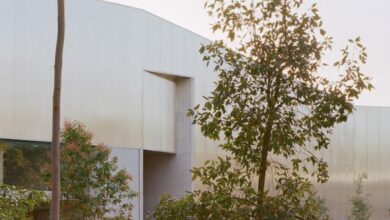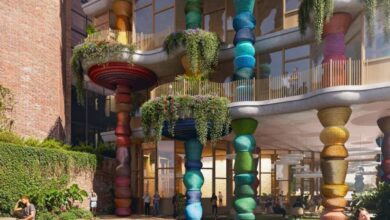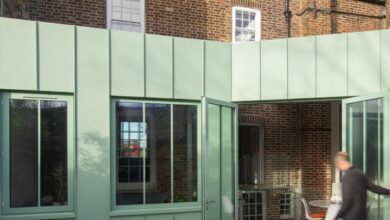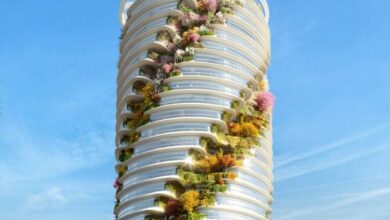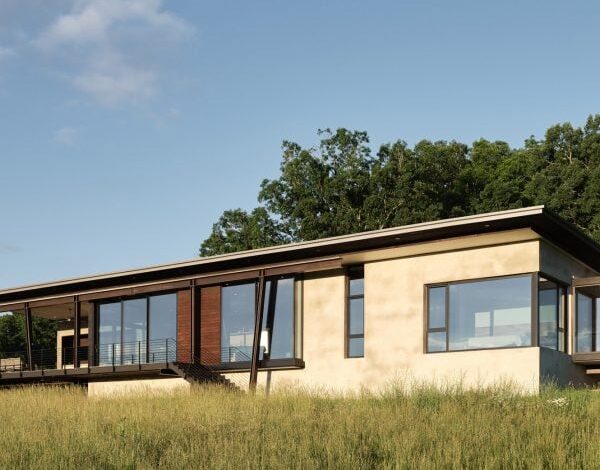
Harding Huebner perches Meadow House on North Carolina hillside
[ad_1]
US studio Harding Huebner Architects has completed a low-lying, energy-efficient home informed by the “agrarian barns and humble structures” found in America’s Appalachian Region.
Meadow House was designed for a retired couple from Texas who love the open landscapes of their former state and sought a property in North Carolina that offered a similar quality.
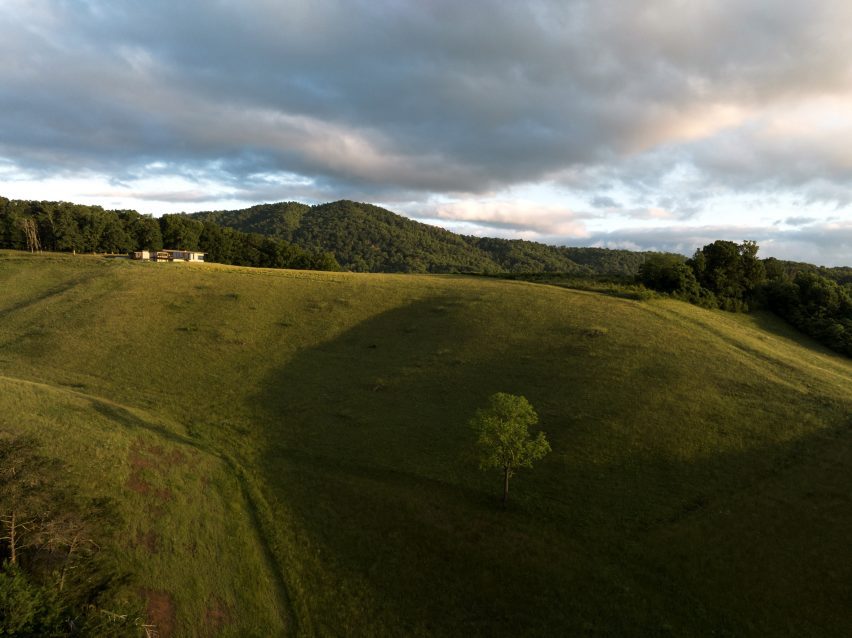
They found it in a 49-acre (20-hectare) farm in a mountain valley near Leicester, a town just beyond the city of Asheville. The property had been farmed for generations and still had its original homestead building and smokehouse near a natural spring.
The property needed a host of upgrades, however.
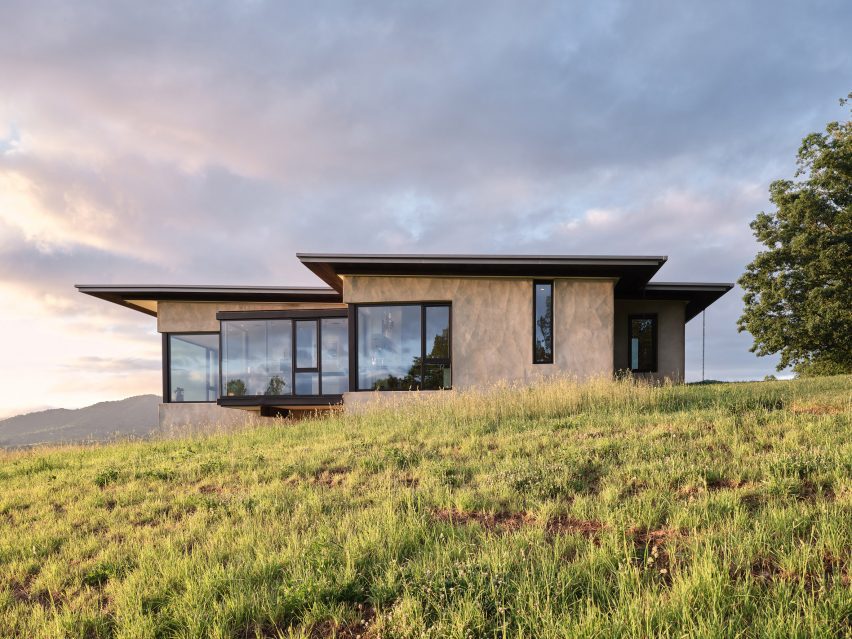
Poor land management had resulted in erosion, silt build-up and rutted land around the spring and through the whole valley.
“Compounding this issue was a dilapidated, old 1950s house that had fallen into disrepair and was no longer contributing positively to the land,” the team said, noting that the property also had a barn that was beyond repair.
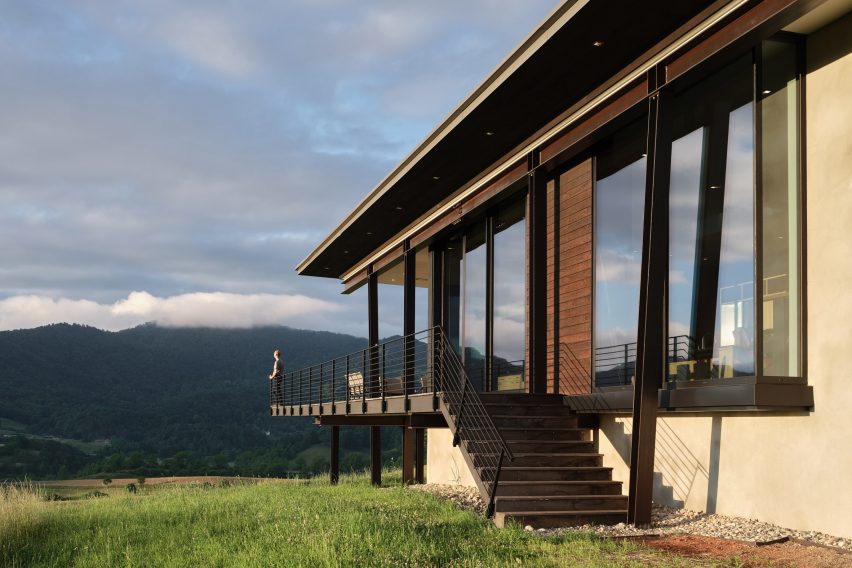
Asheville-based firm Harding Huebner Architects worked with the clients to create a plan for the property that honoured the farm’s history and preserved as much as possible while providing an energy-efficient home suitable for modern living.
The scheme also called for “restoring and healing the land that had been severely scarred”.
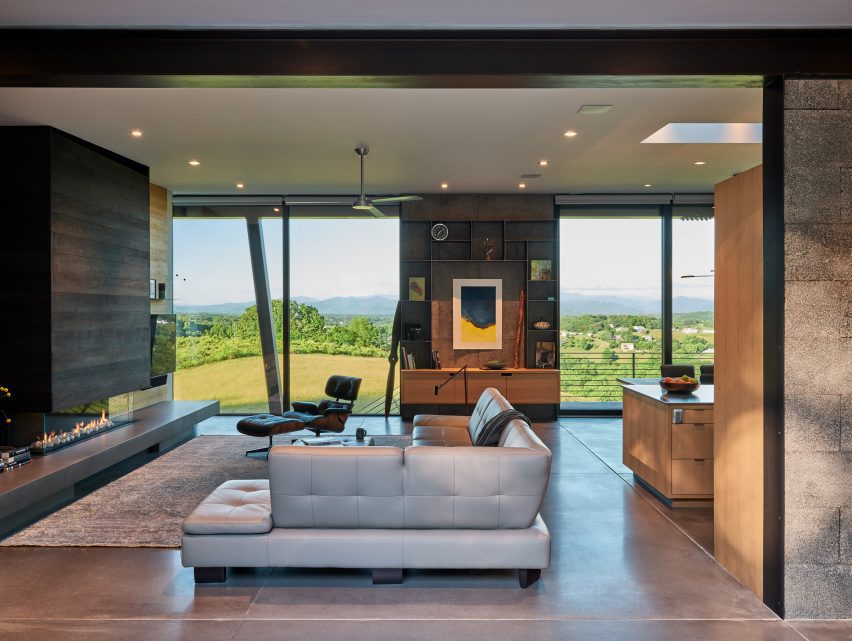
Rather than adapting any of the existing structures for the couple’s home, the team opted to build anew. The chosen site was a grassy knoll near the forest’s edge that was located along an old farm road and offered sweeping views.
The team composed a house that provides “a sense of refuge” while also protecting against strong winds that often cross the knoll.
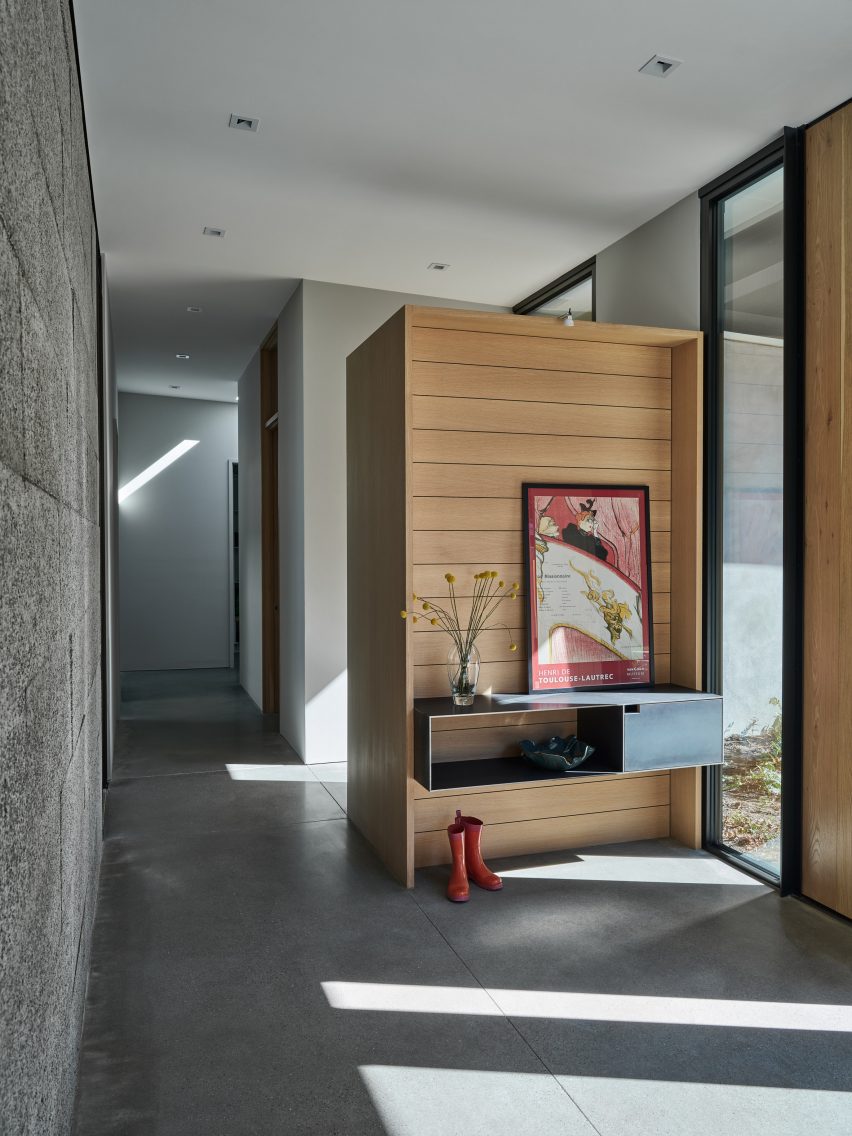
Roughly U-shaped in plan, the 3,761-square-foot (349-square metre) house consists of rectilinear volumes surrounding a central courtyard. The open side of the courtyard looks toward the forest.
“From a distance the home can often disappear into the shadows of the trees just behind it, deferring to the landscape both for viewing and being viewed,” the team said.
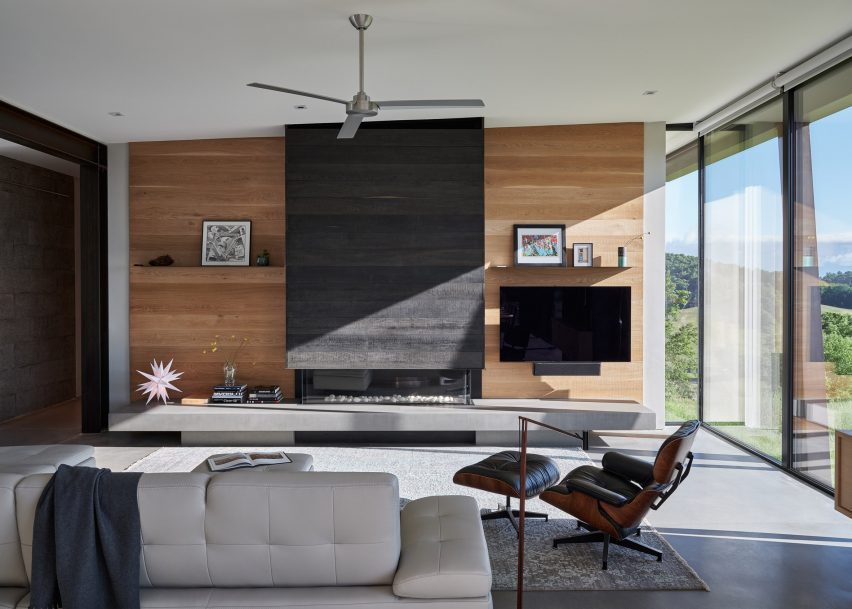
The single-storey home was kept low to the ground and horizontally oriented in order to minimise its visual impact on the landscape. Its form also reflects “the influence of the many agrarian barns and humble structures you would find contextually in this Appalachian region”, the team added.
Facades are largely clad stucco. To build the walls – which are 14 inches (36 centimeters) thick – the team used cement-bonded, wood-fibre blocks – a type of Insulated Concrete Forms (ICFs) for durability and increased insulation.
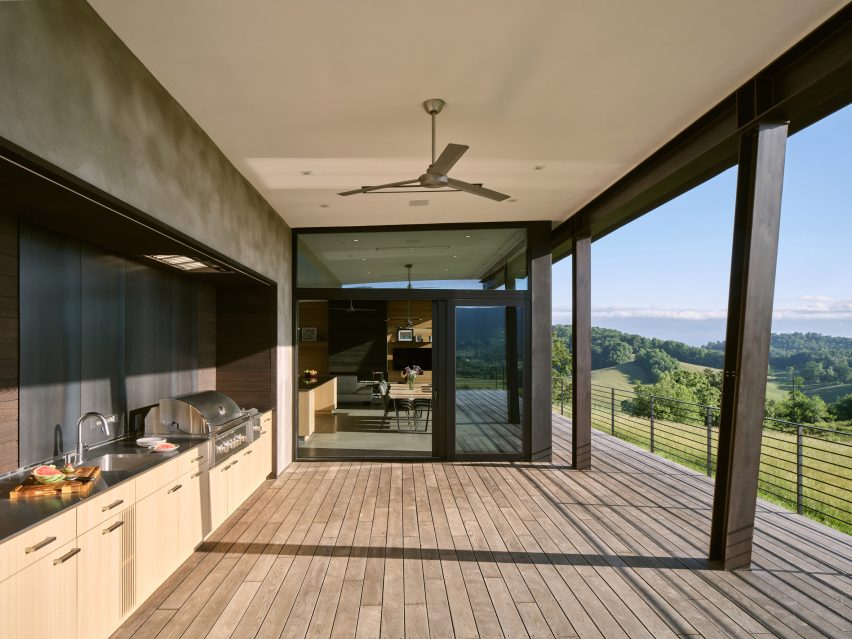
To further improve the home’s energy performance, the team installed triple-glazed windows and doors with thermal breaks in the frames, which help prevent cold or hot air from passing through.
Other sustainable elements include a geothermal HVAC system, heated concrete floors and pre-wiring for a future photovoltaic array.
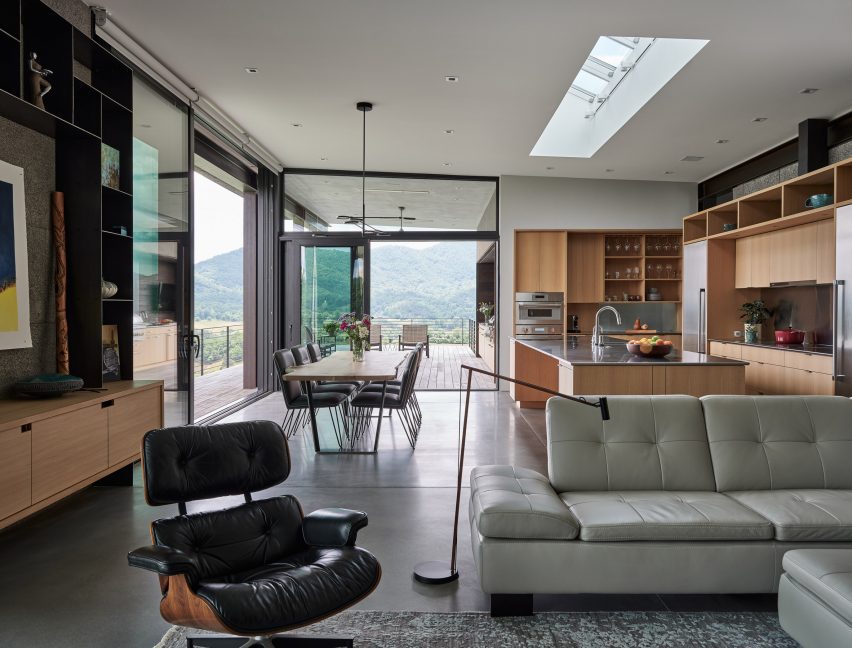
The layout features private areas on one side of the house – a primary bedroom, two bedrooms and an office – and a utility room and garage on the other. The main entrance is found on the courtyard side of the house.
The central portion encompasses an open-plan space for cooking, dining and lounging. An operable, 14-foot-long (4.2-metre) skylight over the kitchen island ushers in daylight while also providing passive ventilation.
Interior finishes include wood that is native to the region and sustainably sourced. A felled tree on the property was used to create a live-edge custom dining table.
Beyond the new house, the project entailed razing the 1950s dwelling. Salvaged materials were shared with the local crew who worked on the demolition. The old barn was also dismantled and its wood was saved for use in the new home and beyond.
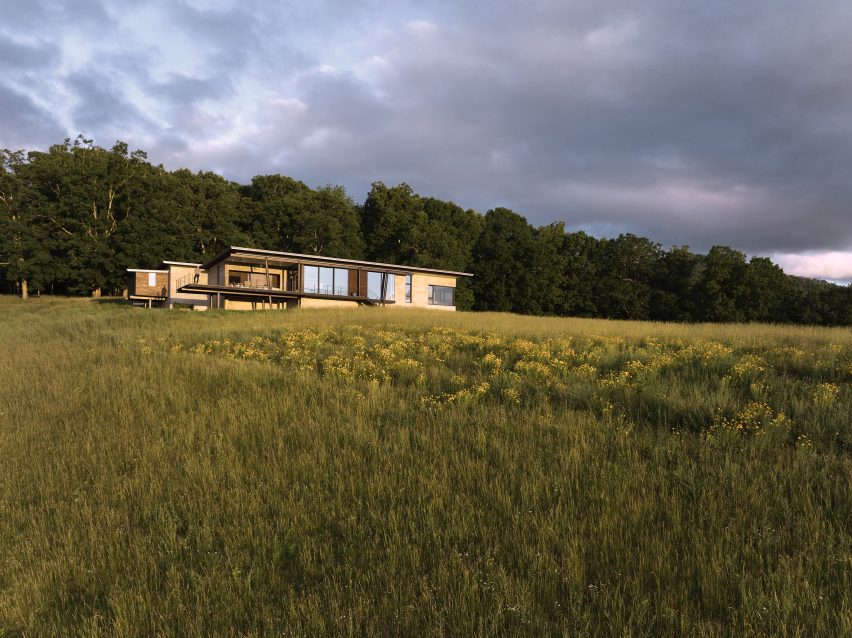
The team stabilised and refurbished the homestead for use as a summer bunkhouse, and the smokehouse was overhauled and now serves as a utility/garden shed.
The landscape, including the area around the spring, was restored so that “a more robust ecology could begin to rebuild in the coming years”.
Other projects by Harding Huebner Architects include the wood-clad Nova Residence, which is built into a sloped spite and features a compact layout and immersive views of mountainous terrain.
The photography is by Keith Isaacs.
[ad_2]


